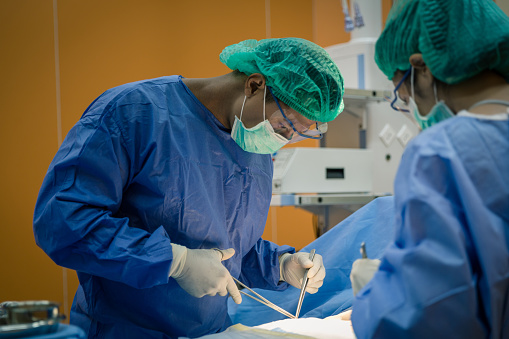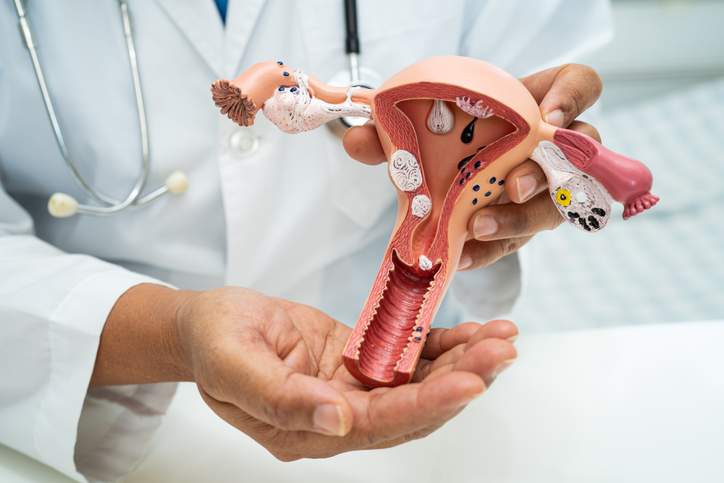
Patients with cancer who undergo complex surgery at top-ranked cancer hospitals incur a significantly lower risk of mortality within 90-days postoperation than patients who have surgery at their affiliate hospitals, according to a study published in JAMA.
In this cross-sectional study, researchers evaluated the Centers for Medicare & Medicaid Services 100% Medicare Provider and Analysis Review file from January 2013 to December 2016 for top-ranked cancer hospitals and their affiliates. They focused on top-rated hospitals for the treatment of cancer at least once between 2013 and 2016 in U.S. News and World Report. “These rankings are known to influence patient choice for care,” the researchers noted.
To identify top-ranked hospital affiliates, researchers queried the American Hospital Association Annual Survey Database from 2012 to 2015. They discerned a total of 388 affiliated hospitals as brand sharing with a top-ranking hospital, of which 343 performed complex cancer surgery during the study duration.
Researchers assessed 29,228 Medicare beneficiaries (older than 65 years) undergoing complex cancer surgeries, including lobectomy, esophagectomy, gastrectomy, colectomy, and pancreaticoduodenectomy. Among all individuals, 17,300 (59.2%; 8,612 women and 8,688 men, mean age, 74.7 years) underwent complex cancer surgery at 59 top-ranked hospitals, while 11,928 (40.8%; 6,287 women and 5,641 men; mean age, 76.2 years) underwent the same surgeries at 343 affiliated hospitals.
Hierarchical logistic regression was used to estimate risk-adjusted mortality over a 90-day duration and standardized mortality ratios were used to approximate the comparison of the relative safety of hospitals within each respective cancer network. Moreover, the researchers performed statistical analysis by implementing two approaches to gauge the extent of any variations in safety of complex surgical care within networks. One approach juxtaposed all patients who underwent surgery at top-ranked hospitals versus those who had surgery at affiliates. The second approach compared associations within each hospital network and assessed for variations in safety.
Affiliates Associated with Higher Mortality
Results of the study suggest surgery performed at affiliated hospitals was associated with higher 90-day mortality (odds ratio [OR] = 1.40; 95% CI, 1.23-1.59; P<0.001), with ORs ranging from 1.32 (95% CI, 1.12-1.56; P=0.001) for colectomy to 2.04 (95% CI, 1.41-2.95; P<0.001) for gastrectomy. Furthermore, when the relative safety of each top-ranked cancer hospital was juxtaposed with its collective affiliates, the top-ranked hospital was safer than the affiliates in 83.7% of studied networks (95% CI, 73.1-93.3).
“Leading cancer hospitals must assume some responsibility for… their affiliated hospitals to ensure that… care is optimized at all hospitals that adopt their trusted brand,” write Hoag et al @JAMANetworkOpen.https://t.co/4FiWw5ggcF
Ditto for top-ranked in other specialties.— Ben Harder #BlackLivesMatter (@benharder) April 12, 2019
“This information may affect hospital preference for a subset of patients, as previous work suggests that a large fraction of the general public equates brand sharing with equivalent care within top-ranked networks,” the authors continued. “Further investigation of performance across trusted cancer networks could enhance informed decision making for complex cancer care.”
You might want to avoid the affiliate hospital for your #cancer surgeryhttps://t.co/fdd8apczvh @JAMANetworkOpen @YaleMed pic.twitter.com/md8bWzzb89
— Eric Topol (@EricTopol) April 12, 2019
Why Travel for Complex Cancer Surgery? Americans React to 'Brand-Sharing' Between Specialty Cancer Hospitals and Their Affiliates. – PubMed – NCBI @AmCollSurgeons @CoC_ACS @NAPBC_ACS #naprc @AnnSurgOncol @ASCO https://t.co/VD8Pv6ZCpw
— Steven D Wexner MD, PhD (@SWexner) April 14, 2019







 © 2025 Mashup Media, LLC, a Formedics Property. All Rights Reserved.
© 2025 Mashup Media, LLC, a Formedics Property. All Rights Reserved.